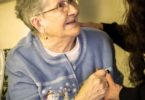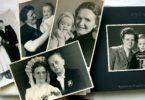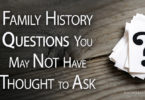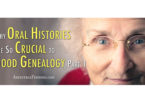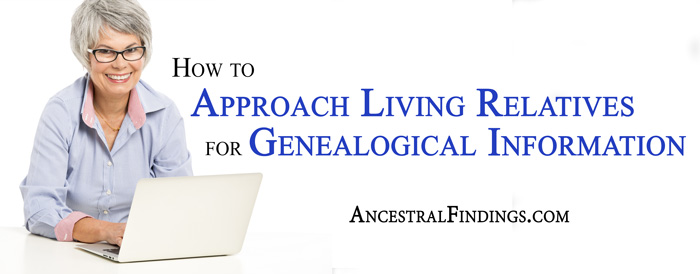While you are compiling oral histories from the oldest relatives in your family, you may want to think about doing them for the younger ones, as well. This is something that has not traditionally been done much in the past, as oral histories were seen as something that people would give once they were elderly and had long tales of historical value to tell. But, when you think about it, an oral history is a glimpse at the world according to one particular person.
Since people change throughout their lives, their perspectives and beliefs, and even ways of speaking and describing things change with them. Imagine how interesting it would be to future generations to enjoy the perspective of modern times from the point of view of a young person, a child, a teen, a middle aged person, or someone else who was younger than elderly. Such perspectives would be excellent and valuable additions to your family tree, and to the history of your town, and the world. You could take oral histories from as many people in your family as you can, of all ages, and put together an excellent genealogy book full of fascinating and unique perspectives of all the present day generations for future generations to enjoy.
Wouldn’t it be wonderful to have a recounting of your great-grandmother’s childhood that she told someone when she was still actually a child? You could then compare her child’s perspective on her life at that time to her later recollections and perspective on her childhood from an older age with the benefit of hindsight, the lessons she learned along the way, and gained wisdom to inform her interpretation of those earliest years. You can do the same thing for your family by taking oral histories of the children. Start a family tradition of doing oral histories on the same people periodically, such as every ten or twenty years or so.
The future generations of your family will have such a rich history available to them, which is an invaluable gift. Plus, these are the kinds of things that scholars, historians, and governments love to collect, to document the history of their people, and of human civilization. You might find that your project ends up being acclaimed one day, or at least made available at a public archives for future people to use to their benefit.
As you can see, the possibilities are wide open with oral histories. This is the time to become innovative with them. It is only a shame that no one did more of these incredible interviews with more people from the past. Think of what a rich and detailed chronicle of the history of our country and our ancestors from abroad we would have now if more oral histories of people at different ages were done. As the family genealogist, this is your chance to create something beautiful, meaningful, and incredibly historically significant. Why not create it?
Once you have made your oral history questions, given the interview, and transcribed it, you must decide how you will preserve it. In most cases, it is best to keep both the audio copy and the written copy. That way, there will be two copies of the interview, and two different ways to access it. Everyone always has their own preferred way of consuming content.
Also, preserving the audio recording means that you are preserving your elderly (or young) relative’s voice, including the sound of it, their accent, their manner of speaking or phrasing things, any vocal idiosyncrasies of theirs, and the emphasis they put on certain words or entire recollections. The vocal recording gives a more authentic version of the way your relative felt about the things he or she was discussing. This is a valuable historical item.
This is a fantastic thing for future generations and historians. They can use the recording to study the way people in this particular area or location, in this particular time period spoke. The same sort of linguistic studies are done on old oral histories today. People spoke quite differently, even in English, just a few generations ago. Old audio recordings of oral histories help linguists and historians trace the evolution of accents, word usage, slang, and other interesting things about language. Audio recordings of oral histories offer so much more than just a first-hand account of history, as you can see. They help fill in the gaps of written historical records in so many interesting and different ways. Consider this just one more excellent reason to do an oral history, or many of them. The scholars of the future will appreciate you.
You can save your audio recording to whatever is the most standard type of audio file in your country and time period. Sending it out to as many relatives as possible ensures that the recording is not likely to get lost. Be sure to also send it to your local archives, history center, genealogy center, or library, along with a copy of the written transcript. The people at these places will know how to best preserve it for future generations. Who knows? If your ancestor or your town ends up being of state or national significance one day, the audio recording and written transcript may end up being in the national archives. What an honor that would be. Now that you know the importance of oral histories, go out and find some to listen to or read. Check with the website of the National Archives, as well as at your local library and on Amazon. You can even Google “oral histories” to find other websites that might have audio or written oral histories (or both versions). Listen to or read the ones that interest you the most, and use those as inspiration for doing your own oral history interviews. Take note of what questions were asked, as well as what wasn’t asked that you would have liked to have known. This will allow you to put together the best possible list of questions for doing your own oral histories with your relatives, both the elderly ones and young ones.


